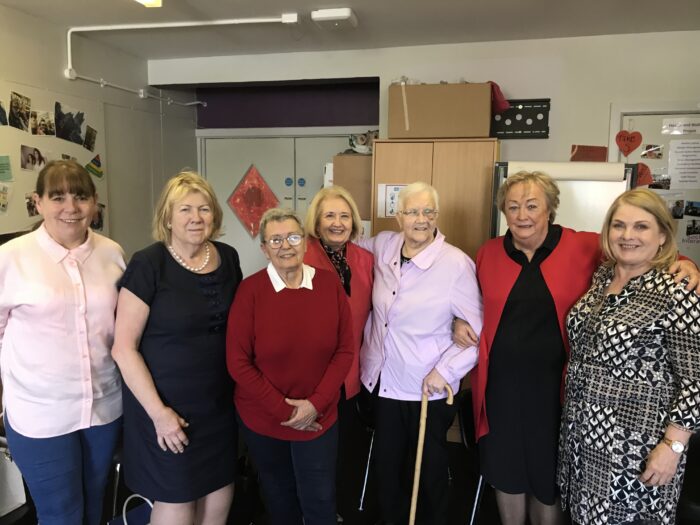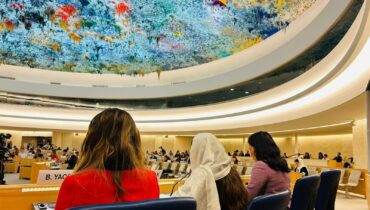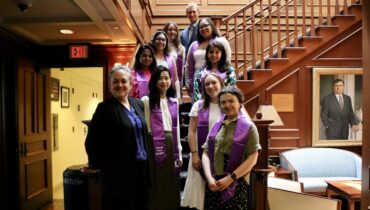The Georgetown Ambassadors for Women, Peace and Security recently traveled to Northern Ireland and Ireland to gain a firsthand understanding of the challenges to the Good Friday Peace Agreement posed by recent political developments.
These troubling developments—negotiations over the Brexit withdrawal, a stalled Assembly, and a new Legacy Bill—underscore the unfinished nature of Northern Ireland’s peace process. The underlying tensions have led to a political stalemate, despite the majority of political parties declaring their support for the Northern Ireland Protocol in response to Brexit, which is in keeping with the Good Friday Agreement. There are concerns over a difficult summer period as a result of Democratic Unionist Party (DUP) protests.
Here is our status report.
Key Provisions of Good Friday Agreement Have Not Been Implemented
In 1998, negotiators from parties across the political divide hammered out a peace deal—the Good Friday Agreement—that brought an end to nearly three decades of violent conflict. One of those parties was the Northern Ireland Women’s Coalition, a cross-community group created to ensure women from civil society would have a voice at the table. Thanks to the efforts of the Women’s Coalition, the Agreement includes many forward-thinking pieces that deal with issues like integrated education, victims’ rights, and inclusive politics: the very issues that guarantee longer-lasting peace by rebuilding society post conflict. However, without a timeline and implementation plan, progress has been slow. More than 90% of Northern Ireland’s children are still segregated between Catholic and Protestant schools; ‘peace walls’ still separate neighbors; and the Civic Forum, a body proposed by the Women’s Coalition that would give civil society representatives a greater voice in politics, has never been rebuilt.
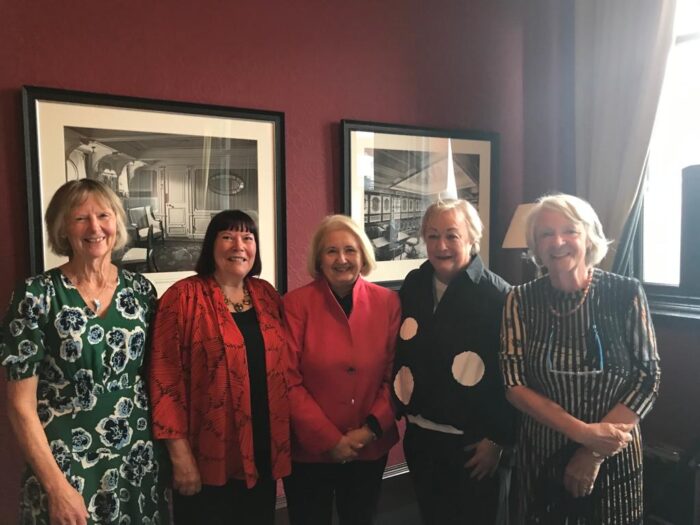
Election Results: Record Numbers of Women in the Northern Ireland Assembly
One piece of the Agreement that has seen progress is the right of women to “full and equal political participation,” another clause introduced by the Women’s Coalition. The recent elections on May 5 saw a wave of young women candidates from across Northern Ireland’s political spectrum. Despite a bruising campaign season, women now constitute 36% of the newly elected assembly members. Two of the three largest parties are led by women—Sinn Féin’s Michelle O’Neill, who will be First Minister when the Assembly sits, and the Alliance Party’s Naomi Long, who oversaw a 100 per cent increase in the party’s vote. Many of these women turned to politics because of issues that touched their communities—support for the health service, rising cost of living and other “bread and butter” issues. These were the dominant issues during the election but tackling them has been put on hold until the Assembly formally sits—a process that is currently held up over the Northern Ireland Protocol.
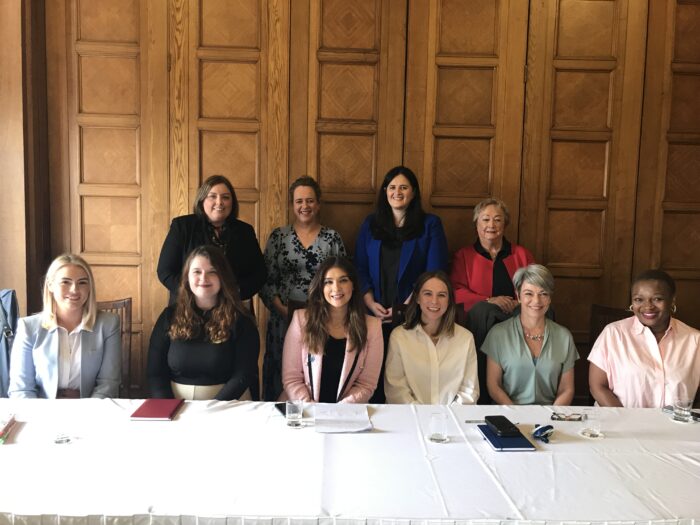
Rising Tensions over Northern Ireland Protocol
The Northern Ireland Protocol was introduced in response to the Brexit Withdrawal Agreement. The EU and UK now have different regulations on meat products and certain goods coming from the UK into the Republic of Ireland (an EU country) must be checked. In order to avoid a hard land border between Northern Ireland and the Republic of Ireland, as mandated in the Good Friday Agreement, some of these checks now occur at ports in Northern Ireland when goods first arrive from Scotland, England, and Wales. Many critics point to new problems receiving critical shipments from other parts of the UK, and unnecessary bureaucracy for local businesses. Others, including the Democratic Unionist Party (DUP), reject the Protocol entirely, saying it effectively creates a new border between Northern Ireland and the rest of the UK. The DUP has refused to join the new government over this, and because of Northern Ireland’s power-sharing requirements, the Assembly at Stormont cannot begin work until they do. Northern Ireland should be able to enjoy the economic benefits of trade within the EU, as well as with the UK. Unfortunately the dispute that the DUP party has with the arrangement is stifling progress and keeping the government through the Assembly from functioning. The UK government has stated that it will create legislation to revise the Brexit Protocol, but the EU argues that this will breach the terms of the original treaty.
Debate over New Legacy Bill and Victims’ Rights
Just as these political negotiations reached a crisis point, another unfinished piece of the Good Friday Agreement resurfaced this month with the introduction of a Northern Ireland Legacy Bill in the UK parliament. The Bill provides for an “Independent Commission for Reconciliation and Information Recovery” that would take the place of criminal justice proceedings, offering conditional immunity to those who cooperate by providing information about unsolved killings that took place during the Troubles. But victims’ rights advocates fear the commission could be used to give a de facto amnesty to British army veterans without providing justice to families whose loved ones were killed. Bereaved families will also be denied their right to inquests or investigations as the government has set a deadline for any outstanding judicial proceedings. Not a single Northern Irish MP voted for the Bill, which is opposed by all the political parties, and protesters in Belfast, Derry, and London called the legislation shameful. Whatever the outcome, the Bill highlights a major gap in the reconciliation process. Women led cross-community victims’ advocacy during the Troubles and ensured that the Good Friday Agreement addressed the issue of victims’ rights. In the absence of a formal truth and justice process, resources for those traumatized by violence often comes from non-profit community groups who struggle to provide sufficient support for trauma counseling and reparations.
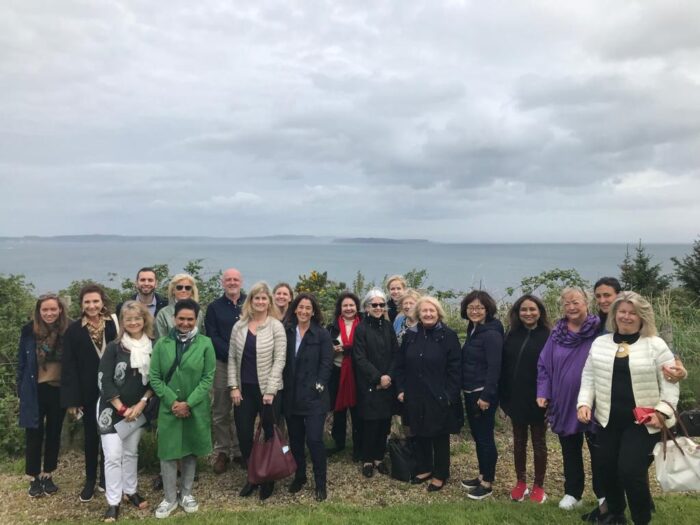
The Future of Northern Ireland
When Northern Ireland voted overwhelmingly to ratify the Good Friday Agreement nearly 25 years ago, it was just the first step in an ongoing process. Brexit, the Northern Ireland Protocol, the Legacy Bill, and a stalled Assembly have all stirred up the divisions that the Agreement sought to reconcile. The majority of people in Northern Ireland believe there will be no return to violence, placing hope instead in economic growth, inclusive institutions, and ongoing work for community reconciliation to bring a peace dividend for all.
The Good Friday Agreement which the US, UK, and Ireland all helped forge together with leaders in Northern Ireland has brought peace and prosperity despite many hiccups over the years. The coming months may be precarious but it is also a time when Northern Ireland’s community groups—particularly women’s organizations that continue to work across divisions, alongside many new youth groups—will accelerate their efforts. Working to keep the peace is a never-ending process. The Georgetown Ambassadors met with many community organizations in Northern Ireland who continue to contribute to keeping the peace. We are especially grateful to Monica McWilliams who was one of the women engaged in negotiating the Good Friday Agreement and who continues to be a leader on a range of issues from disbanding paramilitary groups to leading on a Bill of Rights. We are proud that she is a GIWPS Trailblazer.
The way in which the Queen’s Jubilee was commemorated in Northern Ireland, the centenary exhibition in Parliament Buildings and the Irish language legislation at Westminster are recent examples of how reconciliation can be supported. As the women from the Shankill and Falls Women’s Centre pointed out during our visit, there is still much work to be done on the ground.
